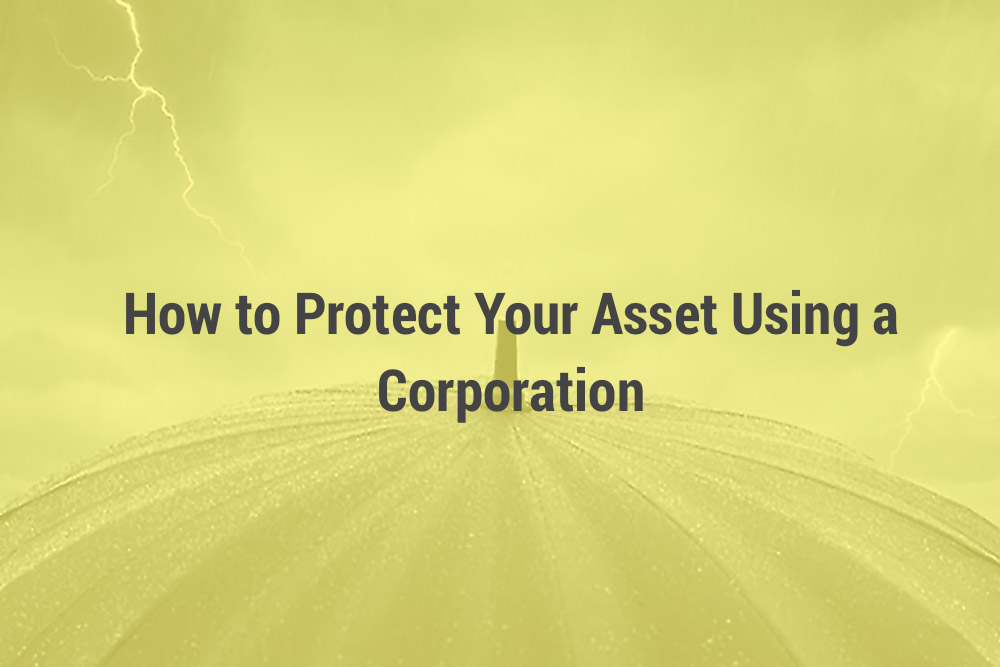
A Corporation is considered a separate legal entity. It files its own tax return and can operate its own business. It can also be sued.
One of the main reasons why an investor would incorporate is that they are concerned with their potential liability for their business.
On the other hand, many investors are hesitant to incorporate because they feel that their insurance is sufficient enough to protect themselves and are in the opinion that you can’t simply incorporate for the sake of risk protection.
Truth to be told, when you incorporate to own properties, the corporation itself usually has no established history. It’s unlikely a bank would agree to lend money to your newly born corporation.
If they do, they often require your personal guarantee.
So you are personally on the hook for the mortgage.
Then there is something called gross negligence – which basically means if you act as a slumlord, you can still be personally liable despite the corporation ownership.
Some veteran investors may even add that “as long as you have sufficient insurance coverage, you don’t have to worry.”
And you may look at the cost of incorporation, roughly around $2K and the cost of annual filing of $2K – is it really worth it to spend so much?
You may immediately conclude – a corporation can’t really protect me much. I have sufficient insurance to cover my potential liability. I don’t need a corporation.
I was one of those investors.
If you’ve been following my blog for a while, I’ve shared a story about the pipe burst at my mom’s property just at the end of 2016.
The pipe burst happened on the second floor, caused a portion of the main floor ceiling to collapse.
It was an issue we knew about for a while but hadn’t gotten round to contacting a company like Good Plumbing & Heating to get repaired for us. And look what happened.
The hardwood floor was all soaked with water. Damaged completely.
Kitchen cabinets started to get swollen from the moisture. Water also went into all the kitchen appliances and furnaces. We tried getting in touch with water damage restoration service providers nearby.
Insurance initially declined the claim, on the basis that no one was living there at the time.
But because our contractors were working there until the Friday before the flood happened and the renovation was extensive enough that the house was considered under construction, so the vacancy section didn’t apply, thankfully.
And because I was visiting the property regularly enough, some exclusion from the pipe burst section also didn’t apply.
We did get the insurance coverage. (And I can finally sleep!)
Yes, it was a happy ending in the end, with a lot of headache and sleepless nights.
But this experience also makes me realize, insurance is not really the ultimate answer to cover all your risk.
How many of you know exactly what your insurance would cover? What are the exclusions and what do you have to do to ensure that you’re always 100% covered in the policy?
By luck, we were doing the right thing, so none of the exclusions applied.
The Statefarm insurance claim adjuster that I am dealing with has been extremely helpful, he’s made the entire process smoother than my previous experience. I even mentioned that to him during our meeting.
I described to him the water damage we had in our rental property a few years back. He said that he didn’t think Statefarm would cover the same type of situation. Some property owners would look into damage restoration in Provo services, or a similar one, to see what can be done to the property to make it better.
You really don’t know what you don’t know. Different insurance companies have different coverage. You may get insured under one policy and you may not get insured by the other one in the same situation.
What if this wasn’t water damage but fire? Would we have enough insurance coverage to cover it? Would our insurance policy cover the damage?
Nobody can answer those questions. Who would have reviewed the entire insurance policy all in detail anyway?
So when people are telling me that they would not incorporate for the liability protection reason these days, I have a completely different perspective on that.
A few months ago I had the opportunity to meet with a real estate investor who just inherited close to a million dollars in asset from her parents.
She’s in her mid fifties and she also has a fully paid off home in the GTA and RRSP worth over $500K.
She and her husband have got a sizable net worth and a comfortable life.
She wants to purchase a few student rentals and she’s wondering if she should incorporate.
Would you incorporate to own the rental property for the sake of protecting your $2.5M networth?
Does the cost of incorporation of $2,000 and the annual filing cost of $2K sound expensive when you look at how much you have to protect in your personal name?
Until next time, happy Canadian Real Estate Investing.
Cherry Chan, CPA, CA
Your Real Estate Accountant





